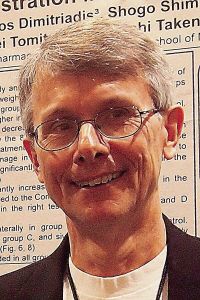TERRY TURNER: The best version of ourselves
Published 9:44 am Tuesday, April 22, 2025

Terry Turner, a resident of Colquitt County, is professor emeritus of urology at the University of Virginia as well as author of books based on his experiences as an infantry officer in Vietnam.
We have just gone through a Passover and Easter season where we are encouraged to remember not only historical oppressions and redemptions but to consider how those histories should guide our sympathy for people suffering oppression today. One historical oppression I personally remember is the segregated, Jim-Crow culture once maintained in the American South and beyond. As an elementary and high school kid, that was the world I grew up in. At that age I was still thinking much of my own comforts and little of the comforts of others. That bubble was popped one day when I was around twelve years old.
I was a farm kid and, like other farm families of the day, it was common for us to come to town on Saturday afternoon to shop in the stores around a prominent courthouse square. A number of oak-shaded park benches had been placed around the square where the tired and laggard could rest; others would sometimes sit on the shin-high concrete border surrounding the square’s lawn. From either of those positions one might hear an itinerant preacher exhorting sinners or hear a musician playing his instrument for coins.
On this particular Saturday I was crossing the square to get to the McClellan’s dime store when I noticed a black man sitting on the square’s low border wall. He was clearly blind and was playing an old guitar so listeners might drop a coin or two in his tin cup. Two or three people had paused to hear him play and one of them, a woman, dropped a coin in his cup. I was about to turn and walk away when the blind man strummed a chord then hummed a low note as if he were getting himself in tune. Then, quietly, he began to play and sing, “Stealll a-wayyy, stealll a-wa-a-ay. Steal away hooome. Lawd, I ain’ got no time to stay here.” And so on. You have to be familiar with the song, I think, to understand. Steal Away is an old Negro spiritual, one from the slave days when the song’s words were, yes, about religion, but also about the escape from slavery and the life of bondage. The song is a lament that, on the surface, is about how death will allow the believer to steal away to heaven; but deep in its heart that song is also about wanting to steal away from right now, from this place of infirmity and bondage, and go to a refuge where all are well and free.
Trending
“Steal away,” the blind man sang soft and low, “Steal away home.” Somehow he made me feel as if I knew exactly what he meant. Here he was a blind black man living a life of much poverty and little hope. He wanted to steal away, steal away home; a song sung so intensely and personally I felt as if I had stumbled into something not meant for me. It was as if I had glimpsed into another man’s soul and was astonished at the view. I suddenly had a new level of sympathy, and when I put my few coins in his cup the man smiled and said softly, “Thank you now. Thank you very much.”
Unfortunately, I have not always retained that level of sympathy. Staying alert to the needs of others is a hard business, which I was reminded of this past season of celebration. In our best version, we are a democratic, capitalist country where sympathy for the suffering is guided by our Judeo-Christian culture. Let’s be that best version, a people who have not lost the trait of sympathy nor the ability to aid those in need.






